- Home
- Brian Hodge
Deathgrip Page 2
Deathgrip Read online
Page 2
Some wild day, was all he could numbly say to himself. Maps unfurling in his head, plotting mental routes. Northwestern Memorial would be the closest hospital. Some kind of wild day.
Stranger in a strange land, yes, the old man was all that and more. Albert Meerschaum was relatively new to Chicago. This Near North Side neighborhood was foreign and familiar in the same glance. The streets and their unfamiliar names, the buildings and businesses that were much the same as anywhere else he had wandered in the city. That comforting sprawl of metropolitan anonymity.
The clatter of footsteps on wet pavement behind him. Just wouldn’t let him rest, would they? Ever. The fear, the awe … these were abundant. Compassion? This was something else entirely. He gave them something to chase. He moved swiftly for his age.
I never asked for that thing. Never asked at all. Bastards just never could seem to get that through their heads.
He could at least give them a ferocious surprise, that much he could do now. Now that the burden on body and soul had been lifted. A curious feeling, the elation and the sorrow. So very bittersweet.
Urban familiarity. He slipped through the stream of afternoon walkers like a man on the most final of missions, and knew what to do when he saw the El sign. Grinning over his shoulder at the two men quickstepping behind him, he ducked between a pair of people wearing slick wet raincoats, and up the stairs he went. The handrail felt wonderfully chilly beneath his palm. Albert was feeling things in a long unfamiliar way, a new being. An ordinary being.
Up the stairs, feet sure of purpose. Even from here he could feel the rumble of an approaching elevated train. One of the delights of the city, always that next train coming along.
They followed, of course. They always followed.
He joined the others on the platform, wind in his face, gentle rain in his eyes. Saw the nose of the coming train, a block away and ratcheting along the tracks, sure as death and taxes. Its perverse beauty was not unappreciated. Albert gently nudged his way forward through the gathering crowd, as if eager to be the first to board. With a bitter grin he noticed that he had kept his hands stuffed into his pockets while wriggling through the crowd. Old habit, ingrained over the decades. Such were the hardest of all to die.
The train, coming, platform trembling underfoot…
Tweedledee and Tweedledum had pressed in close behind him. He knew it without looking, felt them there, their passage through the crowd.
“Come on, Albert, please. Don’t be this way. If you need to talk, we’ve got all the time in the world.” This from the stouter of the two, the American.
He found it easier to ignore them now. Secrets bred smugness.
“Albert.” This one more stern, exasperated, the tall Brit. Gavin. “You’re behaving like a loon. This helps no one, you know.”
Albert sighed. Of the two of them, he had liked Gavin more. Gavin the pragmatist, Gavin the realist. Gavin, who was upfront and didn’t wheedle about like that other mealy-mouth. Give me a man who speaks the truth, any day. Even if his concept of truth is distorted.
Albert turned, pulled a hand from his pocket. They flinched, and it was not a gratifying thing to see. Even if it meant they did not suspect him of having left everything behind in that taxi. He reached into his jacket pocket and produced the small bottle of morphine tablets.
“A present for you, Gavin,” and he pressed it into the young man’s hand. Grimly smiled while watching the sudden realization spread across that long British face.
As fitting a final utterance as any.
The train, roaring toward the platform…
Albert jumped. Retirement day, indeed.
There was little to see, nothing to hear. A life, there, then gone. The train hid all. Down below, through the steel beams and girders, there would be the red drizzle. But up on the platform, little beyond the rippling horror of an aghast crowd. It took something like this to punch through their facades. Something like this, or news from Dallas.
They eased away, these last two who had known Albert Meerschaum by name. Numb tread toward the far back of the platform while the others up front craned their necks for a glimpse of carnage. Something to tell at the family dinner table.
“Oh bloody hell,” Gavin murmured, gazing out toward the street from which Albert had come. All those people, all that traffic. Taxis. He saw one pass by, identical to hundreds. Thousands, perhaps. He followed it into the distance, until its roof was but one more panel of metal among a hundred others.
“Oh bloody hell.”
I
CONSECRATION
We need heretics, not because of their teaching, but because they stimulate us … in our search for truth and for a proper understanding of everything in the world.
— Peter Lombard
Chapter 1
“You want to avoid trouble? I’ll tell you how to avoid trouble,” said the man in the booth. “Leave that dial tuned to KGRM — the only radio station in St. Louis registered by the FCC as a lethal weapon.” Then, to prove the point, he dipped into the wellspring of classics, 1973, Alice Cooper’s “No More Mister Nice Guy.”
The man in the booth was also sounding more than a little stuffy today. Must be one tough virus indeed making the rounds; Peter Hargrove’s normally smooth tenor sounded funneled through a sock. Paul watched through a four-by-six-foot window — aquarium for deejays — and he could sympathize. Riding the airwaves when your head felt like a rotten melon was no fun.
Paul Handler leaned against the corridor wall to wait out the hiatus, one foot unconsciously keeping time with the music. Peter noticed him from inside the booth, gave a good morning salute, then throttled his own nose with an anguished grimace. He was then joined on-air by the station’s program director, David Blane, he of diminutive stature, whose Sominex voice had earned him the nickname of Captain Quaalude. David held the dead-of-night shift until Peter took over at six A.M., then hung around until midmorning. A few moments of on-air banter, and then it came time for holy ritual. Stump The Captain.
The routine never varied, only the questions. David Blane, walking encyclopedia of arcane musicana, taunting Peter Hargrove into asking some obscure question. A case of import beer was eternally on the line. Captain Quaalude would feign stumbles and stammers over a tape of some local band doing a jangling rave-up rendition of the theme from Jeopardy. Out would pop the answer, and Peter Hargrove would take his lumps with heroic stoicism. Five mornings per week, two-plus years this had been going on, and the Captain hadn’t been stumped once. Peter vowed an inferiority complex was due to set in any day.
KGRM, 92.5 on the FM dial, had been Paul’s secondary home for the past seven months. His favorite so far in a career that was but seven years old, a veteran’s span in deejay terms. He had been a defector from a larger St. Louis station, where he’d been the junior inmate in a three-man Morning Zoo team, nearly a year of hurling quips and barbs, spinning generally heavy discs, and racking up respectable ratings. Then a format change, the great scourge of the radio industry, reared its ugly head. A move calculated to make the station better appeal to a more upscale, slightly older, more affluent target audience. St. Louis Urban Professionals. The jocks called them slurpies.
Loss of soul was always sad. The station’s powerhouse sound degenerated into 100,000 watts of milk toast, and Paul abandoned ship, coaxing a sizable portion of his audience with him to KGRM. The renegade station, one of the last outlaw frontiers for music and personalities beyond the fringe. At last. He was home.
The move had entailed a shift out of St. Louis proper into the Central West End adjacent suburb of University City, so named for nearby institutions of higher learning. Easygoing blend of residential, commercial, and campus areas, an arty tidal pool beside the larger urban sea of St. Louis. The nonconformist could always find a niche here. Paul liked it so much he moved to an apartment within walking distance of the station. Spending just as much time there as ever, KGRM, top floor of a limestone office building, a paradox of tastef
ul decor, pastel walls, sedate hanging planters, and high-intensity music.
Stump The Captain, predictably, ended with Peter’s ritual humiliation. David Blane, a bounce to his step, vacated the booth and gave Paul a high five. A silent swinging door deposited Paul inside the eight-by-ten haven. It was crammed with hardware and music, with little excess room. Peter had cued up a bizarre offering from Alien Sex Fiend titled “Now I’m Feeling Zombified” in honor of his head cold.
“You sound awful today.” Paul pinched his nostrils shut to imitate Peter. “There go the Arbitrons.”
Peter tugged off his padded headphones, slid down the booth speakers’ volume. He wearily shook his head and pitched a plastic bottle of nasal spray into the trash.
“I miss the old days,” he said. “Payola. A record rep drops off some new album he wants you to play, and there’s a packet of cocaine inside. We never sounded like we had colds then.”
Paul nodded, sympathetic to the cause. “CDs killed everything.”
Peter leaned back into the swivel seat before the mike. Tight fit. First-time station visitors looked at him, thought no way, this could not be the source of that tenor voice. Peter stood well over six feet, with generous helpings of both fat and muscle. Black beard and bushy eyebrows, Rasputin reincarnated as a disc jockey.
He busied himself loading the next tune while Paul flipped through new arrivals of promo albums, UPS delivery. A generally democratic system, they would all be voted on by station air staff as keepers or trade-ins at the used music stores in the area. When the Alien Sex Fiend faded out, Peter replaced his headphones and back-announced the song while waving Paul closer.
“Wicked Uncle Pete knows when to send out for help, you’ve got to give me that much credit,” he said into the mike. “With me now is Lethal Rock Radio’s cleanest-living soul, the lovely and talented Paul Handler.”
“Lovely and talented, who could argue there? But that cleanest-living thing, you know, that’s still under scrutiny.”
“A few minutes ago, I see him walk in, I realize now here’s a man who just might be able to drive those summer cold demons right out of my skull.”
Paul cocked his head, an uncertain grin. Whaaat?
Peter rolled his hand, go with it, go with it. “Always a ground-breaker, always innovative, KGRM is proud to bring St. Louis another radio first: an actual laying on of hands done live over the air.”
Paul, consummate professional, shifted directly into improvisational mode. He leaned in closer and stuck one hand on the front of Peter’s head. When he spoke, his voice came out as dry and analytical as if he were describing a putt at a golf tournament.
“Yes, I’m in position now, and my hands are in place. I might add at this point that Mister Hargrove could benefit from a new shampoo.”
Peter rolled his eyes and scowled. Fearsome.
“Yessss, brotherrr,” Paul suddenly crooned in a nasal parody of every southern evangelist who had ever pounded a fundamentalist pulpit. “Do ya believe I have the POWER to expel that EEEVIL summer cold demon out of your skull?”
“Oh yes, I do!” Peter cried, hands aflutter.
“Dew ya BELIEEEVE, I said!”
“I do! I do!” Enraptured, Peter clutched his heart and rolled his eyes in full socket perimeter.
“Then FEEL the power of ray-diooo! I say, FEEEEL the power!”
“I can feel it, brother, I can feel it!”
The adrenaline charge was flowing now, the high of working directly before that unseen audience, tens of thousands, treading the tightrope with neither script nor safety net.
“Stick yer hands inside that control board and FEEL the power of ray-dio. It’ll shock yer ass across the station, yes indeed!” Under his hand, Peter quivered in spasms, face turning a lusty tomato red as he held in an explosive laugh. “Then by the power vested in me by the FCC, I hereby command that FIFTY THOUSAND WATTS come down from our tower and CLEANSE this poor suffering wreck of humanity. Out, demon, OUT!”
Peter swiveled in his chair and charged the microphone. He threw his head back, aaahed once, twice, then blasted the mike with a fake sneeze, all the buildup and blowout of a hurricane.
“Hallelujah!” Peter cried, and launched the next song. AC/DC’s “Highway to Hell.” Fuck ‘em if they can’t take a joke.
Peter unslung his headphones again as Paul stumbled back to the wall and slid to the floor. The laughter was too much, just too much. Catharsis. Paul’s shoulder sent the trash can spinning across the floor, inspiring further hilarity at the spewed paper and soda cans, and his legs wavered in the air.
“We’ve got to take that on the road, bud. We—”
Peter clammed up in a hurry. The normally silent swivel door burst inward, put them face to face with a man who looked as if he might once have been a pear that sprouted arms and legs. Then gone into management. Vince Atkins, station manager, in all his glory. They called him Popeye; the laugh was the same, the build was antithesis. His cheeks flamed with anger, or the exertion of having walked from his office. Perhaps both.
“Do you have any idea,” his voice low, deadly, and Paul immediately knew visitors were in the wings preventing a more vivid display of temper, “that I’m trying to do business with some people out there who just might start pouring a shitpot of advertising dollars into this station? Some people from a Catholic hospital? And that one of them is a nun? I do not need a couple of witch doctors at this particular moment.” Glaring, Vince opened his mouth once, twice, most likely trying to think of something else and finding nothing severe enough. Finally, the anticlimax: “Get out of the floor, Paul.” He straightened jacket and tie and was gone.
Paul and his fellow shaman indulged in one more round of snickers, then he righted the waste can and finally himself.
“Well. Maybe it was a little blasphemous.” Paul looked skyward, mouthed the word sorry,
“Fuck it. If Popeye thought it would raise revenue, he’d have us in here doing animal sacrifices and drinking goat’s blood.”
Peter wound out his shift with a slab of industrial paranoia from Nine Inch Nails, then announcing, “And I’m out of here like prunes through a nursing home.” He surrendered the booth to Paul, while the news director commandeered the next few minutes of airtime from a separate booth. Paul used the lull to get set up: select a couple of opening songs, check the commercial log and locate their tape cartridges. From a wall shelf he grabbed his two indispensable totems: coffee mug with its logo of five interlocking rings and legend USA OLYMPIC MONGOLIAN CLUSTER FUCK TEAM, and a stuffed koala given to him by a college girlfriend when he’d graduated eight years ago.
Receptionist Sherry Thomason brought in the communal coffee pot so he could gas up, and jokes abounded as to how brown Popeye’s nose got whenever potential clients visited. Sherry, blue and yellow sundress, dark hair in a French braid. Only a year or so out of high school — total kiddie porn. All the male station jocks bemoaned the fact, and felt as protective of her as a younger sister who’d blossomed too early. A switchboard light winked, and she left to take the call at her own desk.
Two minutes to eleven and counting. Paul blew on his coffee, sipped. Through the window looking in from the corridor he saw Popeye and his three VIPs. Another moment, and Peter came through the other way, probably having just vacated the bathroom. Vince introduced him around, all smiles and putrid phony charm, his public relations persona all the more obvious since Paul could not hear them through the glass. One of the visitors, a guy who looked to be in his mid-thirties, around Peter’s age, said something to him. Peter nodded, said something back, a nod and a shrug. Body language betrayed the entire exchange, Paul would have bet on it.
You don’t look the way you sound, this was what the guy had said, surely. That’s not the way I had you pictured.
Most of them heard it, or variations, a lot. And after a while you got to thinking that some of those loyal listeners would rather take the dust and clay of the earth and make you over in their own image
. Public property, why not?
None of them looked the way they sounded, to Paul’s eye and ear. Peter’s was the most glaring discrepancy between voice and visage. David Blane looked like an undersize sculptor in a fine arts high school and droned like a hypnotist. With a mop of blonde hair and a pristine tan, Lorraine Savage — Paul’s afternoon successor — looked as if she would be more at home waxing a surfboard on a SoCal beach, while her street-smart air voice was as far removed from expected Valley Girl diction as you could get.
And Paul Handler, lord of midday? He had always been happy with the sound of his voice. Clear, vibrant, neither too high nor too low. He was fully aware of a tendency to come off at times like a bit of a smartass; blame late nights with David Letterman for that one.
Yet he could never settle on what looks his voice alone conjured forth. Wasted time, the instances spent before the bathroom mirror puzzling it over. A not unpleasant face stared back, but neither was it arresting. Merely average. Oval, beneath thick eyebrows and dark brown hair kept a little shaggier than what career counselors would advise, with warm brown eyes he felt were his main salvation. An average build and average height topped off the entire nondescript ensemble.
News director Russell St. James wrapped up his allotted time, fired his finger at Paul through a shared window. Passing the torch, time to saddle up and ride the airwaves. Paul punched up his first cartridge to unleash the sonic montage that served as his usual opening. Light baroque strings evoking a PBS fine arts snoozefest, rudely interrupted by a needle plowing across the surface of a record into a screaming Hendrix guitar slide. Then a rapid-fire mishmash of “The William Tell Overture,” reverberated Porky Pig stuttering, and a snippet of the demon-possessed Regan’s voice from The Exorcist.

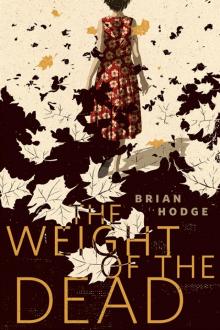 The Weight of the Dead
The Weight of the Dead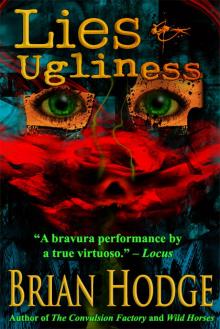 Lies & Ugliness
Lies & Ugliness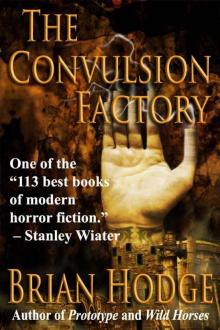 The Convulsion Factory
The Convulsion Factory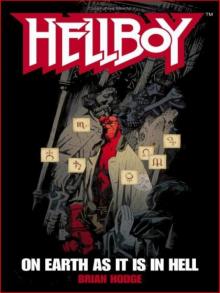 Hellboy: On Earth as It Is in Hell
Hellboy: On Earth as It Is in Hell Whom the Gods Would Destroy
Whom the Gods Would Destroy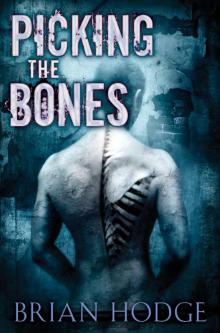 Picking the Bones
Picking the Bones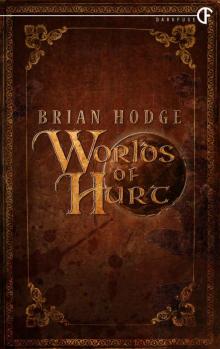 Worlds of Hurt
Worlds of Hurt Oasis
Oasis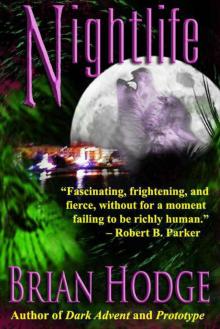 Nightlife
Nightlife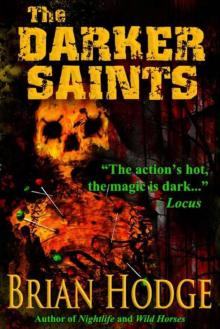 The Darker Saints
The Darker Saints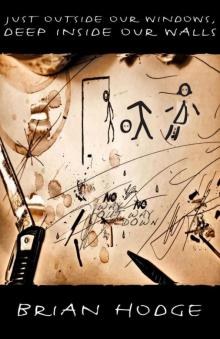 Just Outside Our Windows, Deep Inside Our Walls
Just Outside Our Windows, Deep Inside Our Walls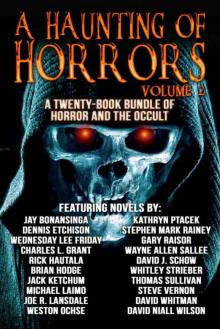 A Haunting of Horrors, Volume 2: A Twenty-Book eBook Bundle of Horror and the Occult
A Haunting of Horrors, Volume 2: A Twenty-Book eBook Bundle of Horror and the Occult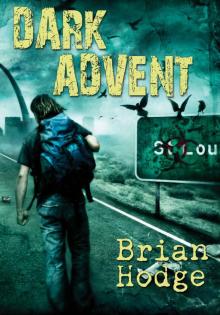 Dark Advent
Dark Advent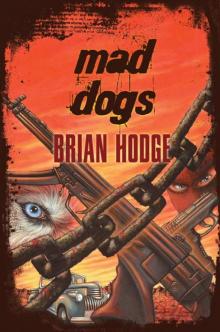 Mad Dogs
Mad Dogs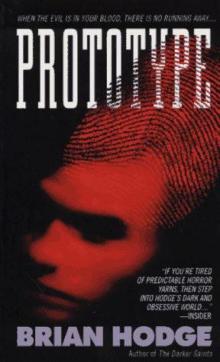 Prototype
Prototype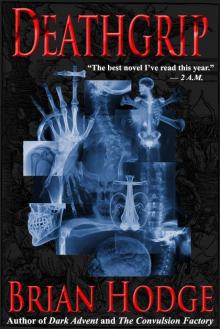 Deathgrip
Deathgrip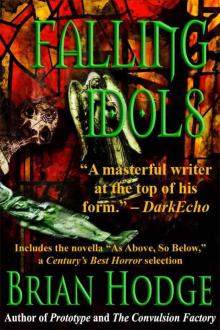 Falling Idols
Falling Idols